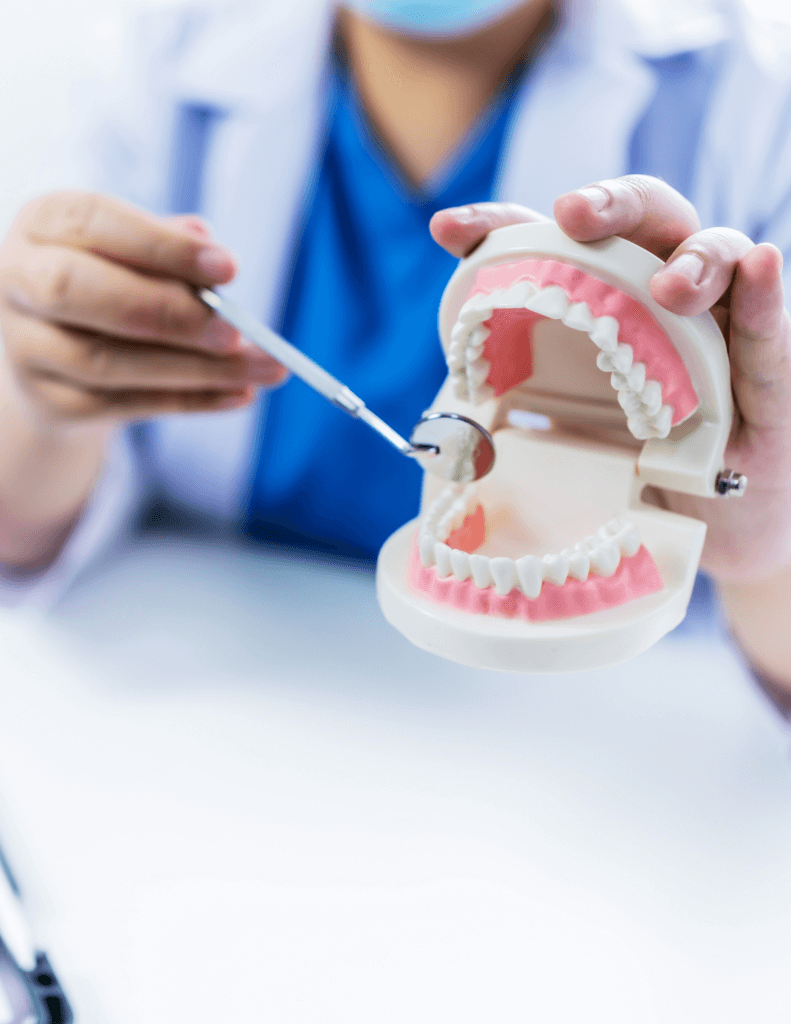Oral surgery can be a daunting prospect for many people. The idea of a dental procedure, whether it’s wisdom teeth removal, dental implants, or other surgical interventions, can trigger anxiety and stress. However, with the right mental preparation and a few strategies in place, you can navigate oral surgery with a sense of calm and confidence. In this blog post, we’ll provide you with tips on how to manage anxiety before, during, and after oral surgery, ensuring a stress-free experience.

Preparing Mentally for Oral Surgery
1. Understand the Procedure
One of the most effective ways to reduce anxiety is to gain a thorough understanding of the procedure. Consult with your oral surgeon or dentist to discuss the surgery in detail. Knowing what to expect can demystify the process and help alleviate fear of the unknown.
2. Choose the Right Oral Surgeon
Selecting a qualified and compassionate oral surgeon is crucial. Here at Tennessee Valley Oral Surgery we are confident in our expertise and bedside manner, and come with years of satisfied patients.
3. Ask Questions
Don’t be afraid to ask questions. Discuss your concerns with your oral surgeon. They can provide you with specific information about the surgery, the recovery process, and any potential complications. Knowing that you have a professional you can trust can bring peace of mind.
Managing Anxiety on the Day of Surgery
1. Arrive Early
Arriving early for your surgery appointment can help reduce last-minute stress. Rushing to the appointment can increase anxiety levels. Plan to be at the clinic with plenty of time to spare.
2. Bring a Supportive Friend or Family Member
Having a trusted friend or family member with you on the day of surgery can provide emotional support. They can also help you with transportation and communication, which can alleviate some of the logistical worries.
3. Relaxation Techniques
Practice relaxation techniques such as deep breathing or meditation in the waiting room. Controlled breathing can help calm your nerves and reduce anxiety. Focusing on your breath can divert your attention from fear.

Coping During the Procedure
1. Sedation Options
Discuss sedation options with your oral surgeon. Depending on the complexity of the procedure and your anxiety level, they may offer various sedation methods, from local anesthesia to IV sedation. Sedation can make the experience more comfortable and less anxiety-inducing.
2. Noise-Canceling Headphones
If the sounds of surgery make you anxious, consider wearing noise-canceling headphones or listening to soothing music. The distraction can help you relax during the procedure.
3. Positive Visualization
Visualize a positive outcome. Imagine a healthy and pain-free smile after the surgery. This kind of positive visualization can ease anxiety and provide motivation for the procedure.
Post-Surgery Anxiety Management
1. Follow Aftercare Instructions
Adhering to your surgeon’s post-operative instructions is essential. This can help prevent complications and reduce anxiety about the healing process. Understanding what to expect in the days following the surgery can alleviate concerns.
2. Pain Management
Pain and discomfort are common after oral surgery. Your oral surgeon will prescribe pain medication or recommend over-the-counter options. Having these medications readily available can alleviate anxiety about post-surgery pain.
3. Rest and Self-Care
Rest is crucial for the healing process. Prioritize self-care and get adequate sleep. When your body feels good, your mind is likely to follow suit, reducing overall anxiety.
4. Communicate with Your Surgeon
If you experience any concerns or complications after surgery, don’t hesitate to reach out to your oral surgeon. Prompt communication can address issues and reduce anxiety about post-operative problems.
Seeking Professional Help for Dental Anxiety
If you find that dental anxiety is a significant barrier to receiving necessary oral surgery or routine dental care, consider seeking help from a mental health professional or a dentist experienced in managing dental anxiety. Techniques such as cognitive-behavioral therapy or dental sedation can be effective in addressing this issue.
In conclusion, oral surgery doesn’t have to be a source of anxiety and stress. With proper mental preparation, the support of a skilled oral surgeon, and effective anxiety management strategies, you can approach your surgery with confidence. Remember that you’re not alone in your anxiety, and many people have successfully navigated oral surgery. The result is often improved oral health and a brighter smile, making the journey worthwhile. If you’re preparing for an upcoming oral surgery, follow these tips, and you’ll be on your way to a stress-free experience and a healthier mouth.
